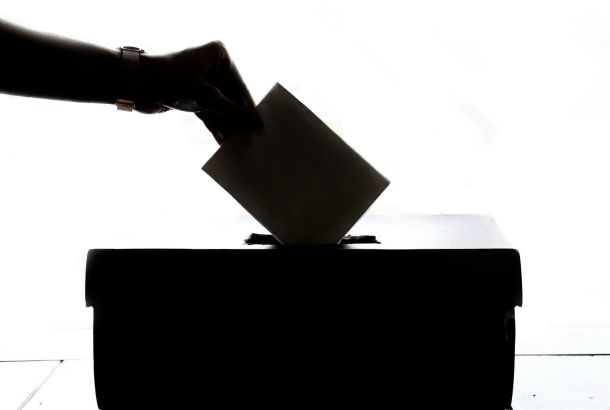Clapgate: What do you think?

Following worldwide media uproar surrounding the SU’s recent decision to promote BSL applause at their events rather than traditional clapping, students haven’t been afraid to add their collective voices to the discussion on what it’s only right to call ‘Clapgate’.
Today’s feverish media climate means any story that could potentially cause outrage certainly will and likely done so with copious amounts of misinformation flying around social media. The SU’s recent clapping scandal is no different; Twitter, Good Morning Britain, and Fallowfield Students’ Group (FSG) alike were packed full of hot takes and ‘one-upmanship’ seeing who could add the edgiest response to the conversation. Most of the discussion generated by the issue could certainly be described as ‘general outrage’, people were incredibly ready to criticise the new policy and substantive discussion was few and far between — as one might expect.
A poll on FSG asking for people’s thoughts on the matter saw the most popular answer: ‘What is the world coming to,’ indicative of the attitudes taken on what is largely seen as a trivial policy. A grand total of 235 people pledged their support to the clapping-induced downfall of society, with the more traditional ‘support’ and ‘oppose’ options garnering less impressive figures of 15 and 51, respectively. Honourable mentions go to the 21-strong anarchist faction of ‘Abolish the SU’ and the equally hilarious ‘what about blind people’. While I’m sure visually impaired members of the student community will remain strong at SU events, only time will tell.
Performative consideration for members of the disabled community, presumably for comedic effect, raises a very interesting question within this discussion — despite this not being their intention. Whilst support for blind students here is undoubtedly just rhetoric, the forgotten demographic within this entire issue is those who actually suffer from disabilities. An idea such as the clapping ‘ban’ was entirely brushed off by students, and a whole host of other commenters, across the country as ludicrous without voices of those suffering from sensory-related disabilities ever really entering public discourse. As many of those who are affected by these disabilities would rarely show signs of it, there exists very limited visibility and therefore very little empathy as people struggle to understand the challenges faced by someone with ASD (Autism Spectrum Disorder) or other such conditions.
A further survey found that overwhelmingly, students felt the policy wouldn’t be beneficial to those with sensory-related disabilities. 71% of respondents held this view, which indicates either a lack of relevant information on the side of students or a very misinformed policy decision from the SU. Sam Hyatt, a student suffering from ASD, stated that “despite whatever backlash, it’s a policy that will help me and a lot of other people in my position.” Over 1% of people in the UK are affected by ASD in some way, and while not all cases result in sensory issues, it presents a significant challenge for many. “When people aren’t familiar with something obviously they won’t completely understand it, and it seems like that’s what we have here,” Hyatt added.
Multiple survey respondents posed a question along the lines of ‘Why aren’t affected students consulted before these policies are put forward?’ In light of Hyatt’s comments, it would appear that the SU is consulting the right people on this matter but that the student population’s backlash is one from a position of ignorance. There exists such a strong push-back against most calls for inclusivity and accessibility from a wide range of people that measures implemented to support those with disabilities, especially those that are less visible, will always create huge controversy.
The assumed heavy-handedness of the policy created a lot of issues for many of those who complained, and the SU was quick to release a subsequent press release clarifying their decision. However, despite the statement revealing that those caught putting two hands together on uni property won’t be shown the wall, student opposition remained strong. The survey revealed that only 30% of respondents were more in favour of the policy after reading the press release, with 50% having their opinion unchanged and the rest even more opposed.
An important aspect of Clapgate is remembering how these decisions are actually made. The political processes of the Students’ Union are supposed to act as a democratic means for students to have their voices heard and affect legitimate change across the university. The decision to ‘ban’ clapping, however, was made by some 20 people at the most recent Senate. Other motions included campaigning for greater QTIPOC (Queer, Trans, and Intersex People of Colour) inclusion and advocacy, and issues surrounding Islamophobia, Black History Month, and LGBT History Month.
The Senate deals with a wide range of significant topics which have incredibly tangible consequences for large portions of the student body, and yet attendance and engagement remain uninspiringly low. Students appear unphased by university politics, either feeling it doesn’t adequately serve them or simply having no knowledge of the various Elections and meetings and opportunities to be heard.
Many spaces exist for students to have a significant voice and to put their wills and visions into action. However, most of the campus carries on with disregard, until the time comes to get 50 likes on FSG.







